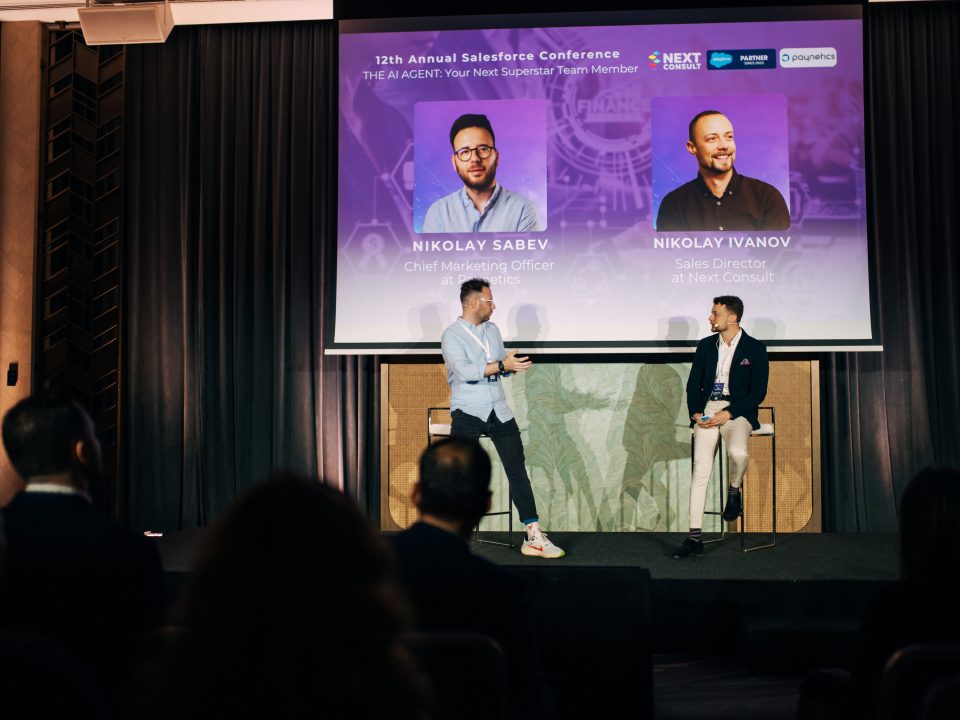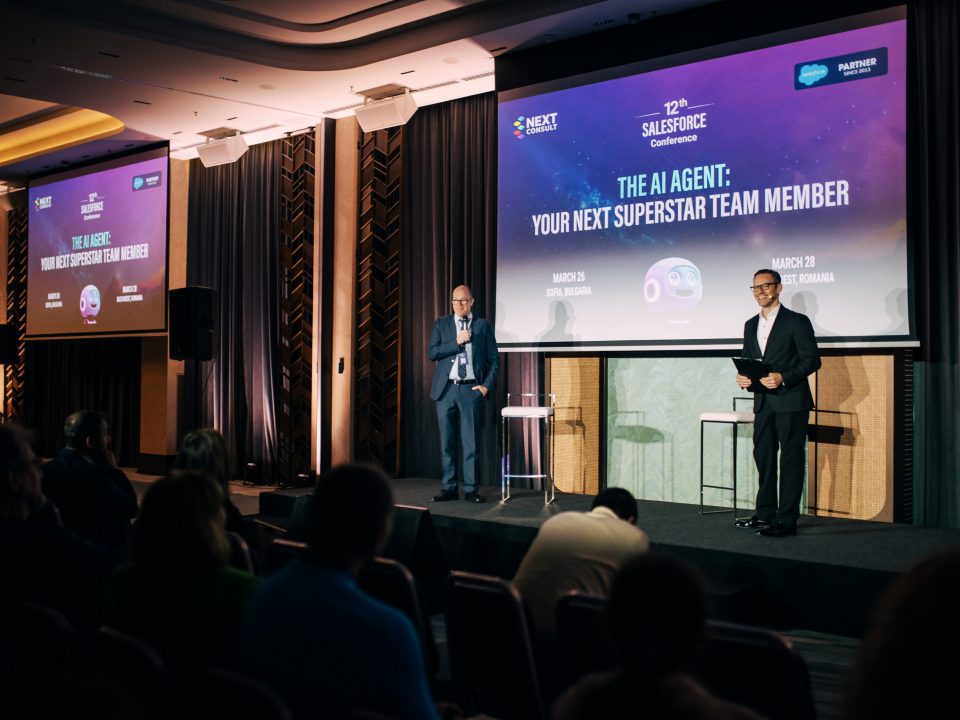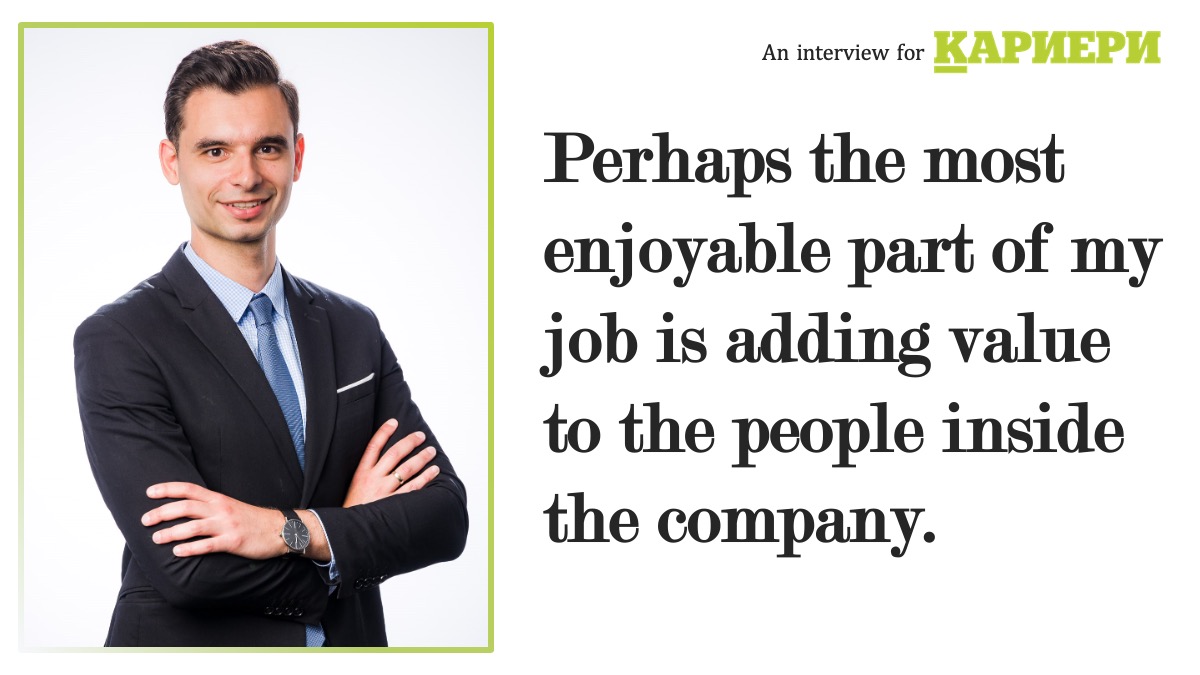
Borislav Uzunov, People & Culture Manager: I am happy to see people in the office, who haven’t been there for a long time
For an interview for Karieri.bg from December 2021 Borislav Uzunov described his job as a People & Culture manager as “an interaction with the people who start working with us, helping everyone be better, so that in every touchpoint they have with us, they remain with a good impression”. It is about the selection process for employees as well, their onboarding, what are their needs for them to feel good with us, leave with a good impression and have a desire to come back.
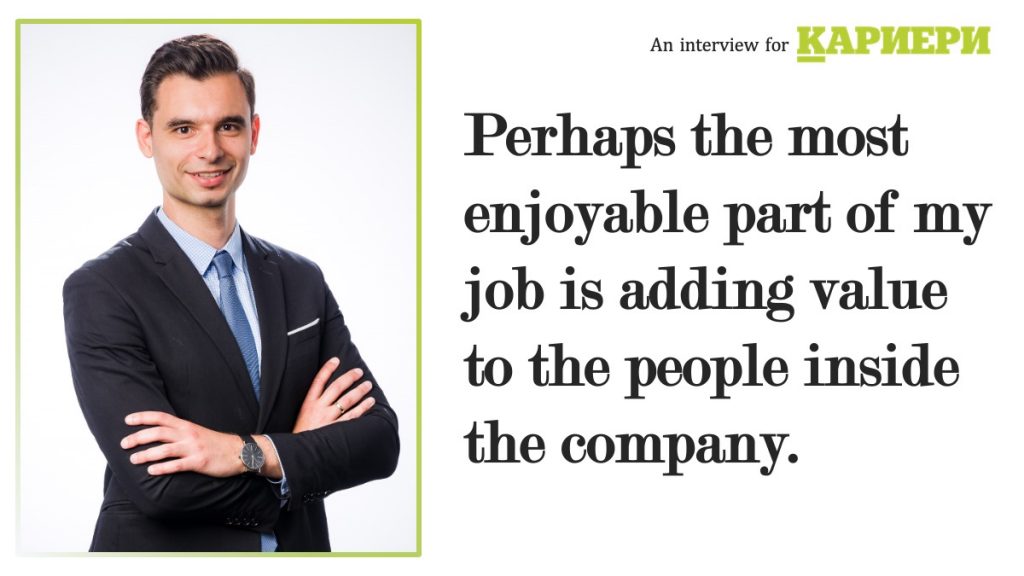
For Bulgarian -> CLICK HERE
Borislav Uzunov is People and Culture Manager at Next Consult. He has worked for the company for the past 6 years and his previous role as a business consultant included development and management of remuneration systems, motivational and growth plans implementation, selection and recruitment procedures development.
He has worked on projects focused on implementation of lean practices, aimed at improving quality without increasing expenses. Uzunov has a BA in Hungarian Philology at “St. Kliment Ohridski” University, a Masters in International Relations from the same university and a Masters in “Business, Management and Marketing” from the Vrije University Brussels.
Borislav is a long-term employee of the company and received a raise to this position at the end of last year. Three months later he wants to tell us more about his career path and the characteristics that this new position requires of him. Have a look at his story below.
My profession
My main goal in this role is to proactively look for people’s needs at the company and to make sure everybody has the environment, instruments and clarity about their role and responsibilities, and also the knowledge about the different professional development opportunities, so they can grow and develop in their desired direction.
I believe this function is very important, especially at the moment, when there is shortage of staff, we are working from home, the work environment and the corporate culture are very different and very much digitized.
This is a prerequisite for changing the way in which we manage our employees, the way in which we attract talent and last but not least – in the way we onboard them and how we further develop their skills and knowledge.
The role of People & Culture manager requires a rich array of soft skills, which are becoming increasingly wanted as expertise and experience and this is a tendency that will remain in the future.
It's specific, because these types of skills are very important in the business world, but they are not something that is emphasized in formal education. In this line of thought, if you put effort into developing your communication skills, empathy, leadership this is in fact a competitive advantage for any professional.
My education
For one reason or another, I have a very diverse education background. In high school and in university (for my BA degree) I studied languages. After that I pursued political science and graduated with a Masters in International Relations and Diplomacy at Sofia University “St. Kliment Ohridski”. Linked to this, I gained a lot of experience in the NGO sector and at the Ministry of Foreign Affairs. At the end of the day, all of these experiences made me redirect my time and attention to the private sector. In order to gain the necessary knowledge, I needed a formal qualification. This is how I decided to continue my education in Brussels for a Masters in Management.
All of this broadened my view of life, different cultures, spheres of work, and worldviews, but it also showed me that if you are a good person, if you love to communicate, if you care about people, what particular subject you studied is not so important. It is important to find your place and to do the thing that makes you happy. Well, I am happy when I maintain contact and communicate with people.
This is also the philosophy at Next Consult. It does not matter what you graduated in, it is important to have a growth mindset and to be satisfied with what you are doing on a daily basis.
My career path
Before I joined Next Consult, I gained different experiences, including at the Atlantic Club of Bulgaria and the Ministry of Foreign Affairs. Later, I joined a manufacturing company where I worked as a translator and coordinator at one of the factories of the company. Back then, I realized that I am “good” with people - I used to get along with everyone, regardless of their background, gender, or age and I was managing my relationship with everyone with ease.
6 years ago, it was the time for a change for me. I applied to Next Consult with lots of enthusiasm, because the company looked very interesting, innovative, and developing at a fast rate. I started my job there as a consultant at the Management Consulting team. I can say that I gained wonderful experience, participating in many various projects, getting insights from different companies from many industries and with different business models, and facing their specific problems.
In my role as a business consultant, I also worked on projects for implementing Lean practices in production companies. The Lean methodology, which we are representing and implementing, actually is a philosophy that allows and focuses on the involvement of all team members in the company’s management and guides the entire transformation of the organizational culture. Thanks to this experience and expertise I’ve gained, I further developed my interest in people and appreciated their critical role in achieving success for every business.
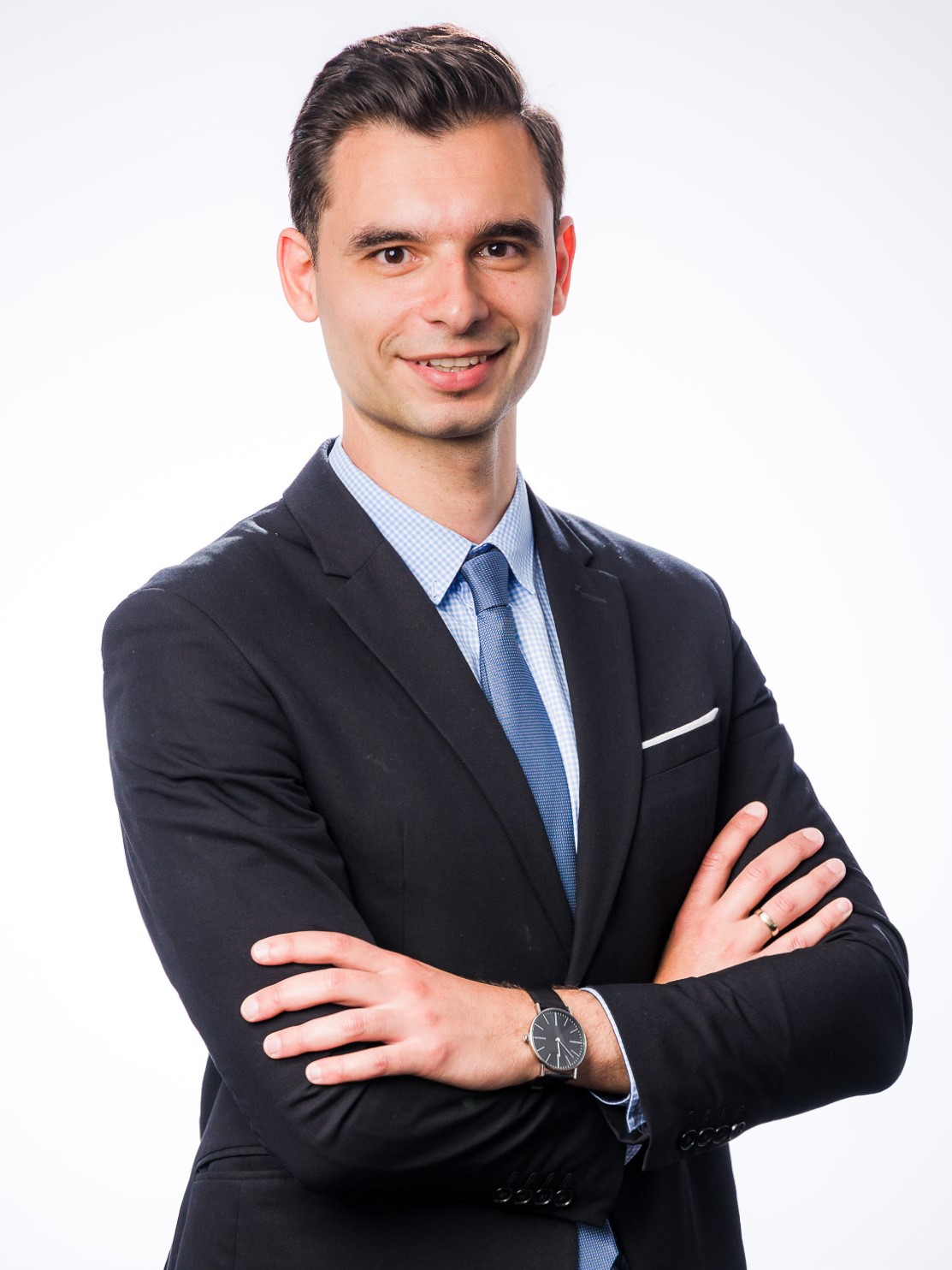
My tasks and responsibilities
One of the tasks I set for myself is to keep in touch with my colleagues on a daily basis. I want to know how they feel every day, what challenges they might be facing, and what successes they have achieved. I try to help them analyze the situations they find themselves in and make informed decisions, as well as we all together to share and celebrate their successes (both big and small). Fortunately, the size of the company still allows us to maintain personal and close contact with every team member.
The main task that my management has set for me is to make sure that everyone in the company feels good in the office and/or with their remote work, to be satisfied with what has been achieved, with the opportunities for development and in general with the company’s culture and work environment.
We are currently working on improving all internal processes in the company. The goal is to create a great work experience so that each colleague feels heard and fairly evaluated, knows where he is going, has all the necessary tools to get there, and last but not least – has fun while walking through their professional path.
And perhaps the most enjoyable part of my job is adding value to the people inside the company. Every day I work with everyone to define together initiatives and activities that will improve our daily work. It is very important for me that everything that has to do with the people in the company comes from them as well. I don't insist on being the one to invent all the benefits for employees or what types of team meetings and initiatives to have. On the contrary, these ideas come from people, and after that we just introduce them.
Perhaps the most enjoyable part of my job is adding value to the people inside the company. Every day I work with everyone to define together initiatives and activities that will improve our daily work. It is very important for me that everything that has to do with the people in the company comes from them as well.
Borislav Uzunov, People & Culture Managet at Next Consult
Skills and experience required for this position
It is very important to be able to listen. It sounds simple, but in fact listening is something that turns out to be difficult for people. Then you need to be able to feel and show empathy and truly want to help.
It is also important how you communicate with people, how much energy you radiate and how much you manage to attract them on the path of your own and team success. In general, all these are the qualities of a leader. And to manage people, you have to have leadership skills. Otherwise, who will follow you?
My personal challenges
One of the main challenges for me is getting into the details of people's daily lives. This is an exceptional burden on your own daily life. However, it is critical for me that no one else feels this tension. I try to maintain an environment in which people feel free to turn to me at any time, no matter what.
Fortunately, our company is based on the philosophy of knowledge transfer, and we have introduced a specialized mentoring program. Every employee has a mentor who is his sparring partner - he trains him, challenges him to think and look at things from a different angle, and guides him on his growth path. It is this combination that makes our approach extremely successful and sustainable.
"It gives me the greatest satisfaction when one of my colleagues says: "I'm glad we talked, now I know what to do!" or "Thank you for your support and help!", shared Borislav.
My satisfaction
Even before Covid, we had a policy of working from home, and now we work on the principle of working from everywhere, which everyone appreciates as having exceptional freedom. And that's great, but the isolation which results from working from home also has its side effects. For me, they are mostly linked to a decrease in the sense of belonging in the team, a lack of social contacts, and a significant reduction in physical activity. This is one of the reasons why we try to be close to people every day, to discuss their daily lives, to discuss the ideas they have, etc. We also try to stimulate coming to the office (albeit for a short time), mountain hikes together and many other initiatives that are useful for both the team and the individual spirit.
I am extremely happy to see people in the office who have not come for a long time, or when we manage to unite most of our colleagues for one of the initiatives that we regularly organize.
The salary
This profession is extremely relevant and practically necessary due to the tangible competition in the labor market and the battle for talents. Every mature company is aware of the need and benefits of this role, and that it is crucial for the retention and loyalty of its employees.
This is the reason why it is well paid and, of course, with the accumulation of experience and skills, the salary increases. However, it is important that young people do not forget that experience and expertise are not gained in a month, two or a year. It takes a lot more time to be a real expert and be highly competitive in the job market.
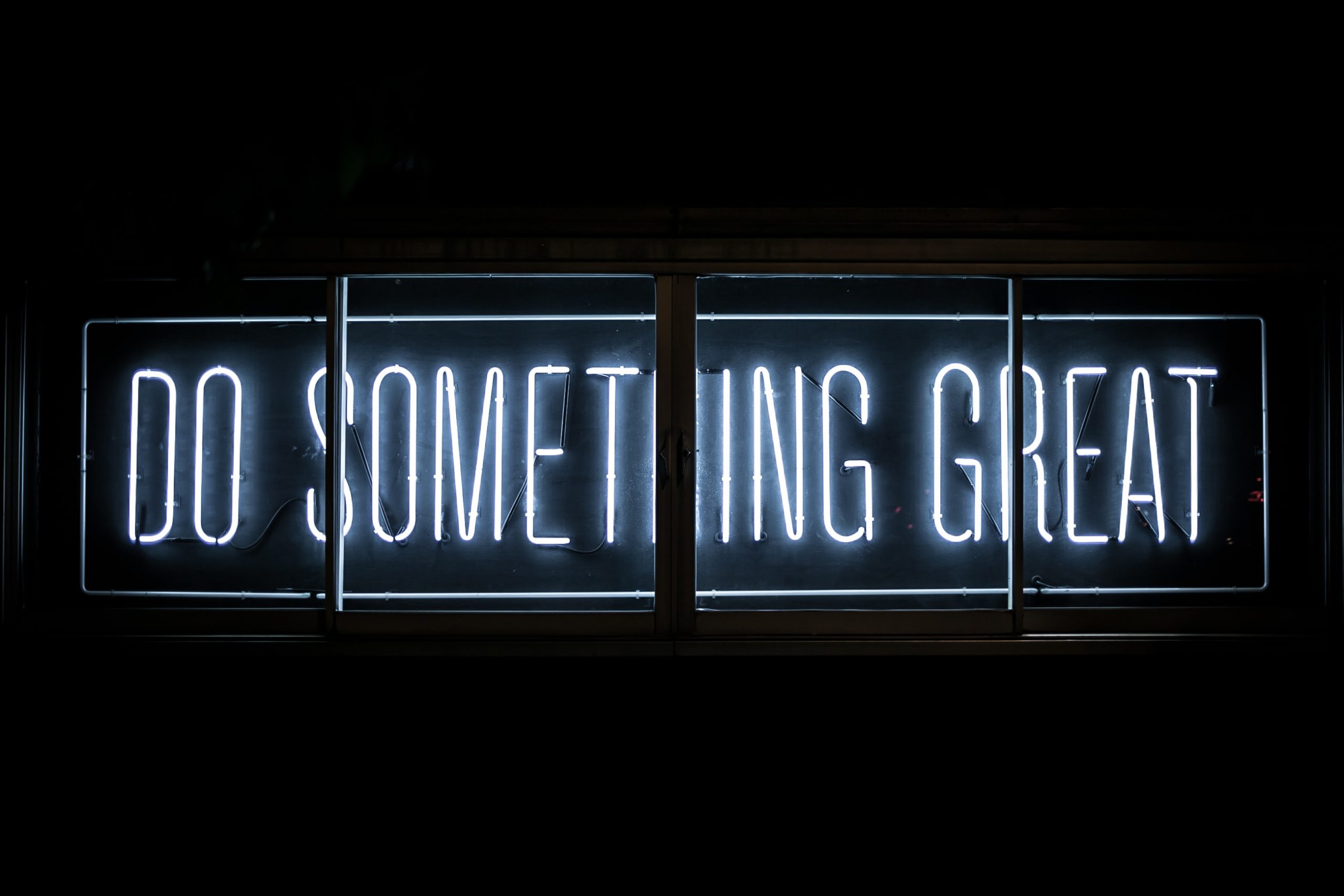
My plans for career development
My personal goal is for my company to be one of the most recognizable employers in the industry in a few years. If this happens, it will mean that we have done a good job and we will all be celebrating together, because obviously the culture we have created will be exactly what we dreamed of.
I dream of others coming to us and asking us how we created such a unique work environment. When that happens, my position in the hierarchy will not matter.
My sources of information
For me, the main source of information is people. I always want to hear what article or idea they liked or what impressed them, or what they want to have in our company, that we currently don’t. These are the so-called insights that help us add value right where we need it and just when we need it.
LinkedIn is my other favorite source of information. As long as, of course, you have basic skills to sort the information you read, you can find many useful materials and ideas that have already been tested by leaders in each field.
Third, I love learning all the time. Platforms like Skillsoft, LinkedIn Learning, Udemy and even YouTube are easy ways to quickly acquire knowledge. And I've noticed that even watching a course on a topic where most things are clear to you challenges you to think and come up with new ideas.
How did the coronavirus affect your work?
I would say that the pandemic did not just change, but in fact created the need for such a position. And this is clear from the fact that more and more companies are resorting to the formation and creation of such functions and roles.
There is a lot of talk and different articles about how much the working conditions for people have changed since we all resorted to working from home (very often in the same room with our children). This change has led to a whole new view of work as a phenomenon in people's daily lives. The boundaries between personal and professional life have become very blurred, and while we talk about how working from home leads to more freedom and control over personal time, in fact it has a very negative consequence as well, which is yet to manifest itself in people's psyches. The fact is that it is becoming increasingly difficult for us to put an end to the working day and work is becoming more integrated into our personal lives.
This is the reason why the role that has the function to care for the well-being of the people in a company has become much closer to them and much more flexible. My goal in my job is to be close to my colleagues and to know at all times what they are facing in their professional and even personal life. Therefore, I together with the company's management, to provide them with opportunities to reduce stress - whether it will be just an informal conversation with which to share their difficulties, or other tools that might be relevant. It is important that everything is identified on time and that the decisions come from the people themselves.
Skills required for this role:
- Empathy
- Devotion
- Negotiation skills
- Active listening
- Analytical thinking and problem-solving skills
- Leadership skills and ability to set the tone and energy when communicating with people

